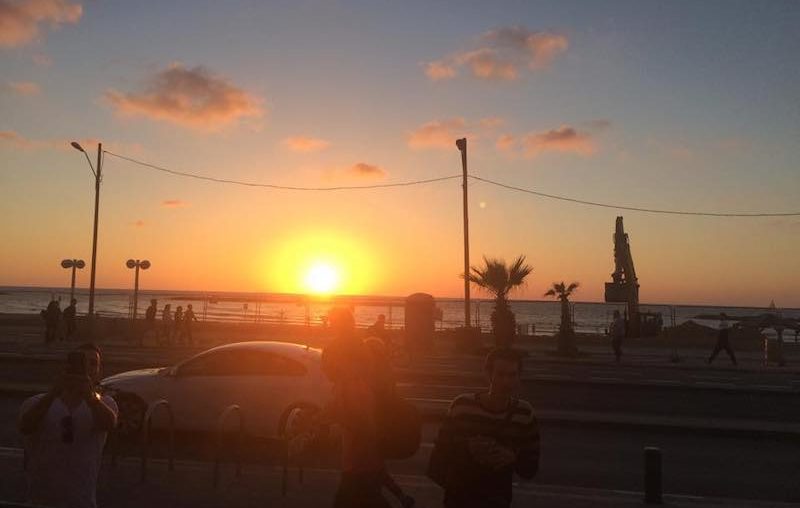As the child of a Jewish mother and a non-Jewish father, I’m no stranger to the odd identity crisis. The capacity to hold two divergent sets of values, and to believe two incompatible truths, is second nature. This discomfort, inherent to my personality, subsists. At 23, my inner moral and political compass moves defiantly and haphazardly between left and right. As a millennial, I’m told to be fiscally conservative but to champion social welfare, to remain equally environmentally conscious and politically active, whilst similarly maintaining a strong sense of individuality. The pendulum – as it were – is, as expected, perpetually swinging.
I try, albeit, to remain socially attune, to recognise and to combat injustice where possible. I do, of course, fail in many regards: I don’t attend protests, I haven’t eliminated meat from my diet, and I benefit – everyday – from the sheer fact of being a white, straight, educated, female. And still, I do care, however unable (or unwilling) I am to translate that into practice.
There is one issue, however, that continues to penetrate my radar, both perversely and perhaps, at times, too intimately. The issue that, despite engaging in productive discussion and debate, I fall squarely on the same side of, every time. The issue that provokes – with its death, destruction, violence and furore – global political contribution and, often, social condemnation. If you hadn’t guessed already, it’s the Arab-Israeli conflict.
To me, Israel is a hotbed of culture, celebration and chaos. It’s a place of extreme personal comfort and ease, despite existing against the backdrop of hate and turmoil. It’s a country where wine flows and laughs are had aplenty and people dance in the street with their curly hair and laidback exuberance, characterised symbolically by the hustle and bustle of the marketplace. And yet, to many, Israel is not that at all.
When I’m asked about my gap year I often decline to answer. It’s a geographically vague and non-particular, “volunteering;” no substance and no form. When I’m asked where I met my boyfriend, “travelling,” seems to attract less questions and less quizzical expressions. For “Israel?” (emphasising the question mark) implies that for some astounding reason, I had the audacity to both travel to and live in an active warzone. That I have, by virtue of my being there, ignored the grievances and struggles of the Palestinian people.
At a Jewish school, we’re taught the basics: we know that two opposing sides want to call the same piece of land their home, separately. Separate to each other, nationally, religiously and culturally disparate. This narrative is neat. It’s neat because, as a Jew attending a Zionist school, we’re sold the story that we have won. But what we aren’t taught, and what becomes increasingly clear as we enter the social fabric of the outside world, is that this situation is far from black and white. We can’t package centuries of history into a box, tie a ribbon, and call it a victory.
I look concerningly at the Apartheid. At the LGBTIQA+ movement. At Australia’s institutionalised mistreatment of Indigenous Australians. At the Irish Civil War. At South Sudan. At Myanmar. At the Holocaust. At the Suffragettes. At Third Wave Feminism. At the Vietnam War. I look at them all and what becomes starkly and frighteningly clear is this: in the 21st century, as a 20-something-glued-to-technology-over-exposed individual, there is a clear right and a clear wrong side. I can decipher immediately who was morally, ethically and socially correct.
I can’t help but wonder what percentage chance I had of being born into an upper-middle class family, in the “lucky” country, with no real safety concerns: the utter antithesis to a life of being born in Gaza, or a refugee camp in the West Bank. The chance that I was born here, where I can observe the situation from a conservative distance, participating in the Tel Aviv party scene when it suits, but turning a blind-eye to the misery and torment of our brethren next door.
And whilst I know there are legitimate differences in the Israeli and Palestinian leadership response; differences in the rhetoric they espouse and the lessons that they teach. I can’t help but feel that I’ll be proven wrong. That the acts of war and of violence perpetrated on Israeli soil is justified. That the oppression of Palestinian people lends credence to their desires of Israeli destruction. But, realistically, how can we know? How can we know when two sides tell two parallel stories – two sides that toe the same line without ever overlapping, without ever accepting that, perhaps, there’s mutual blame.
So, without attracting outcry from the left or snickering from the right, how can I navigate the murky waters of the Arab-Israeli conflict and come to a conclusion that’s as unbiased, dispassionate and level-headed as possible? Is that possible? Or am I opening a Pandora’s Box on a lifetime of sugar-coating, agenda and ideology?


Comments are closed.